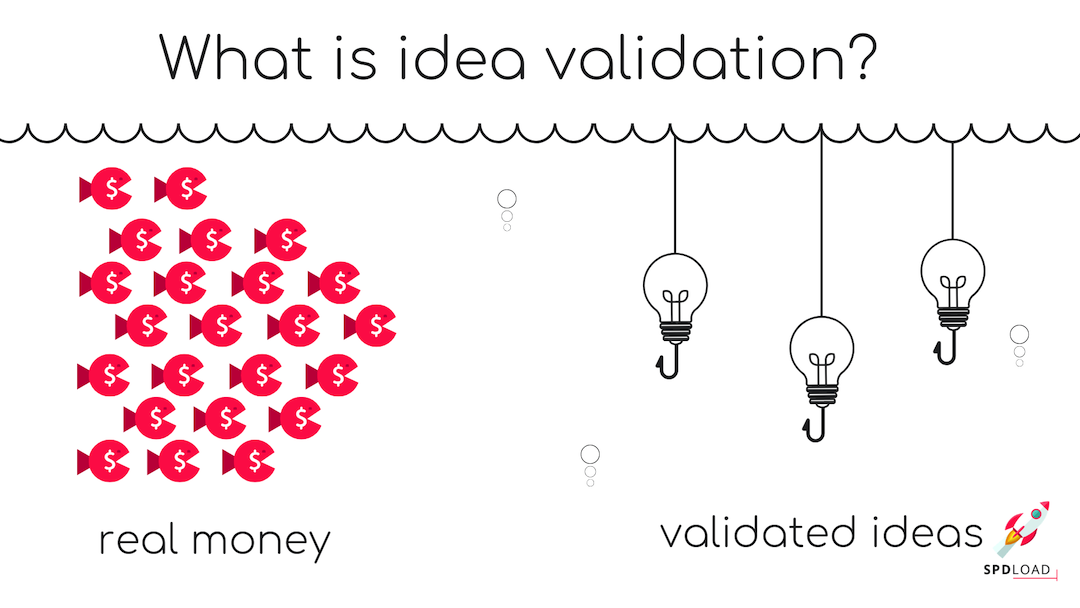What Is Idea Validation and Why Does It Matter?
Idea validation is the process of systematically testing your business concept to assess its viability. It's crucial for any startup founder wondering how to validate a startup idea to answer these questions:
Problem/Solution Fit: Does your idea solve a real, painful problem for potential customers?
Market Demand: Is there a large enough target market willing to pay for your solution?
Differentiators: How does your idea stand out in a crowded marketplace?
Validating early saves you time, money, and heartache later. Why build a product that nobody needs? Validation protects you from investing countless resources into a venture destined to flounder.

Insights from Startup Veterans
The best way to grasp the significance of idea validation is to hear directly from those who've been in the trenches:
"You’ve got to start with the customer experience and work backwards to the technology, not the other way around." – Steve Jobs, Apple, emphasizing the criticality of customer validation.
"Fail often so you can succeed sooner." – Tom Kelley, IDEO
“Get five or six of your potential customers together and tell them about your idea..." — Eric Ries, author of The Lean Startup, emphasizes the importance of early-stage startup validation.
Do you have the skills to be a successful entrepreneur?
Take our free quiz to measure your entrepreneurial skills and see if you have what it takes to run your own successful business.
Your results will help you identify key skill gaps you may have! Up for the challenge?
Idea Validation Techniques for Startups
Let's translate these wise words into actionable methods:
Customer Interviews: Customer validation is a critical step to achieving product-market fit. Don't assume, ASK. Interview people within your target market. Explore their problems, identify pain points, and see if your idea resonates as a solution they'd pay for.
Market Research: Analyze your industry, trends, and competitors. Is there a genuine gap for your idea to fill? What are your key competitive advantages?
Minimum Viable Product (MVP): Build a simplified version of your product with just the core features. This allows early testing and customer feedback for rapid iteration.
Landing Pages and Pre-Sales: Create a landing page describing your solution to gauge interest. This is a powerful product validation technique, and you might even consider collecting pre-orders to assess demand further. This is a quick, low-cost way to evaluate market demand.
Crowdfunding: Crowdfunding campaigns provide a unique opportunity to validate interest while potentially raising some early capital.

The Power of Idea Validation & Continuous Iteration
The Idea Validation Mindset
Effective validation requires a specific mindset:
Embrace Feedback: Put ego aside and actively seek constructive criticism. The goal is to uncover flaws and weaknesses now, not after significant investment.
Be Data-Driven: Let the information you gather inform crucial decisions. Track, measure, and analyze data to avoid the pitfalls of subjective biases.
Continuous Iteration: Validation is an ongoing process. Be ready to adapt, pivot, or even kill an idea based on reliable evidence.
M-PESA: A Case Study in the Power of Idea Validation & Continuous Iteration
M-PESA, the revolutionary Kenyan mobile money platform, offers a potent case study in the power of idea validation. Initially conceived to enable microloan repayments, the creators pivoted when customer interviews revealed an even stronger market need: secure, low-cost money transfers. M-PESA filled a major gap for users in areas with limited banking infrastructure, addressing a true, deeply felt pain point. Market research underscored the enormous demand, particularly across rural areas, with adoption ultimately exploding far beyond initial expectations. A willingness to listen and adapt the concept based on early validation laid the foundation for M-PESA's transformative success within Kenya and beyond.

Conclusion
Ideas in a vacuum hold little value. Idea validation transforms ideas into actionable plans, turning concepts into real, sustainable businesses. It's the vital, make-or-break step that every aspiring entrepreneur must embrace. If you don't take proactive steps to validate your business idea, the market will do it for you – often with much harsher results.
Validate, Build, Succeed: Unlock Your Startup Potential with Nexford University
Don't wait to validate your big idea! Learn proven techniques in Nexford University’s Building a Startup pathway program – your first step toward making your entrepreneurial dream a reality. Discover the pathway and explore our Master of Science in Entrepreneurship to accelerate your transformation.
Do you have the skills to be a successful entrepreneur?
Take our free quiz to measure your entrepreneurial skills and see if you have what it takes to run your own successful business.
Your results will help you identify key skill gaps you may have! Up for the challenge?
Subscribe to our newsletter
Don't miss out on our latest updates.
Unlock Your Potential: Explore Our Programs
Invest in yourself and your future. Discover our range of degrees, courses, and certificates to achieve your goal







.png)